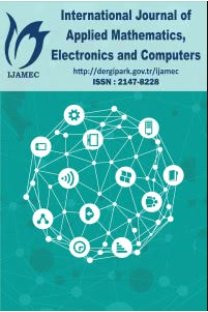An Ontology Based Approach for Next Generation Customer Relationship Management Systems
Customer relationship management - CRM systems aim to increase customer satisfaction and loyalty to the company through actions that can be performed by monitoring and analyzing customer behaviours for companies. In these systems, the data obtained from different sources such as sales process, service, and call center are interpreted by the CRM experts as a whole, and the necessary action is taken for the customer. With the rapid progress in information technologies, the diversity of channels that are used to collect data, the size and dynamism of the data have increased. This situation has made it impossible for experts to wholly interpret big-size data from a wide variety of sources in a short period of time. In the CRM area, there is a need for technologies that automatically integrate the data obtained from several sources and can interpret it semantically. In this study, an ontology-based approach is proposed, which allows automatic semantic interpretations on the data obtained from different sources. Based on the proposed approach, a tool has been developed that can unify data from different CRM systems in a common format and make customer-centric interpretations of this data. The tool continuously monitors the systems it is integrated with, and when it detects the conditions defined by the users on the data, it can automatically perform the actions determined by the users. The tool developed was experienced by integrating a CRM system of a company and the evaluation results obtained in this process were discussed.
___
- S. Knox, A. Payne, L. Ryals, S. Maklan, and J. Peppard, Customer Relationship Management Perspectives from the Marketplace, Routledge Publishing, 2003.
- P. Bagó, and P. Voros, "Social customer relationship management, " Act Sci Soc, vol. 33, pp. 61-75, 2011
- S. A. Brown and P. W. Coopers, Customer relationship management: A strategic imperative in the world of e-business. John Wiley & Sons, Inc., 1999.
- D. Magro and A. Goy, "A core reference ontology for the customer relationship domain," Applied Ontology, vol. 7, issue 1 pp:.1-48, 2012.
- D. Magro and A. Goy. "Towards a first ontology for customer relationship management." In Proc. 5th international conference on soft computing as transdisciplinary science and technology, 2008.
- Grivel, L. "Customer feedbacks and opinion surveys analysis in the automotive industry." Text Mining and its applications to intelligence, CRM and Knowledge Management., WITpress, 2006.
- D. L. McGuinness and F. Van Harmelen. "OWL web ontology language overview," W3C recommendation, vol. 10, 2004..
- Rygielski, Chris, Jyun-Cheng Wang, and David C. Yen. "Data mining techniques for customer relationship management." Technology in society, vol.24. issue. , pp. 483-502, 2002.
- T. L. Christensen, "Using business rules for determining presence." U.S. Patent No. 9,398,152, Jul. 19. 2016.
- B. L. Eisenfeld, Gartner Report – CRM Economics: Figuring Out the ROI on Customer Initiatives, 2001
- C. Lam, Hadoop in action. Manning Publications Co., 2010.
- M. Jarrar, R. Verlinden, and R. Meersman. "Ontology-based customer complaint management," OTM Confederated International Conferences" On the Move to Meaningful Internet Systems". Springer, Berlin, Heidelberg, 2003.
- J. Horrocks, Ed., "SWRL: A semantic web rule language combining OWL and RuleML," W3C Member submission, pp. 1-31, 21.79, 2004.
- G. Raab and R. A. Ajami, Customer relationship management: A global perspective. Gower Publishing, Ltd., 2008.
- M. Gupta, Akka essentials. Packt Publishing Ltd, 2012.
- P. Bijan, and E. Sirin. "Pellet: An owl dl reasoned," In Proc. Third international semantic web conference, Vol. 18, 2004.
- B. McBride, "Jena: A semantic web toolkit," IEEE Internet computing, vol. 6, issue 6, pp. 55-59, 2002.
- F. Jouault, et al. "ATL: A model transformation tool," Science of computer programming, vol. 72, issue 1-2, pp. 31-39, 2008.
- ISSN: 2147-8228
- Yayın Aralığı: Yılda 4 Sayı
- Başlangıç: 2013
- Yayıncı: Selçuk Üniversitesi
Sayıdaki Diğer Makaleler
Perihan Gülşah YILMAZ, Güzin ÖZMEN
Kaan BAKIRCIOĞLU, Nalan ÖZKURT
Murat AYKANAT, Özkan KILIÇ, Bahar KURT, Sevgi Behiye SARYAL
Ezgi ZORARPACI, Selma Ayşe ÖZEL
